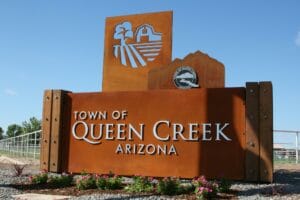Casa Grande Dispatch
(Editor’s note: Opinion pieces are posted only for purposes of discussion.)
The battle over a Tohono O’odham Nation plan to build a casino outside its traditional boundaries in the West Valley is likely to go on for a while. Meanwhile, the tribe seemed to make a little progress this week as the city of Glendale started talks.
Glendale has been a strong opponent of the tribal plan to gain reservation status for land it owns that is surrounded by the city — and place a casino there. The city, which has ongoing budget problems related to its sports venue commitments, has spent $3.5 million on legal fees opposing the casino. The stated reason is that there would be related costs for emergency services personnel, and the casino would pull dollars away from the Westgate Entertainment District and other businesses.
 The tribe’s plans would violate a state gaming compact that limits the number of casinos in the Valley. The change is opposed by the state and also the Gila River Indian Community and Salt River Pima-Maricopa Indian Community, which have casinos in that area.
The tribe’s plans would violate a state gaming compact that limits the number of casinos in the Valley. The change is opposed by the state and also the Gila River Indian Community and Salt River Pima-Maricopa Indian Community, which have casinos in that area.
The Tohono O’odham Nation has casinos in the Tucson area but is eying a bigger prize in the Valley, and that has not sat well with the tribes that already are established there, as well as Glendale and other parties.
We have said before that the current system, in which gambling is limited to several reservation sites, is working pretty well. More extensive gaming operations, favored by some non-Indian interests, would have some economic benefits but also would cause more problems. The current system has benefited the tribes, and some revenues are shared with local governments and nonprofit entities.
For those reasons, changing the compact would be a bad idea. Glendale seems to be opening the door because of potential benefits to the city, a concept that could lead to overextension of casinos if everyone wants to get a piece of the action.
Glendale has agreed to talk, but many obstacles remain for the Tohono O’odham goal. And Glendale still is officially opposed to the plan. Federal legislation sponsored by U.S. Rep. Trent Franks would block more casinos in the Valley until 2027.
This story is likely to linger.







